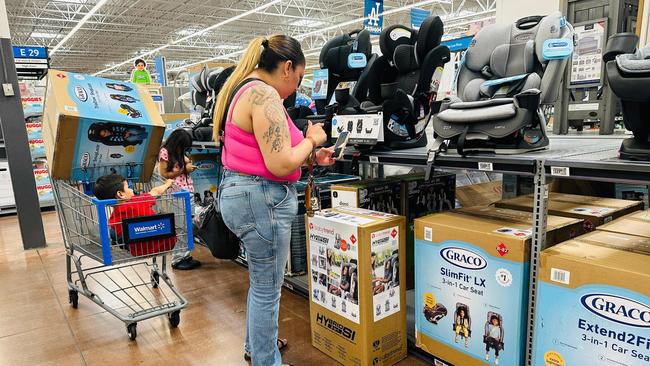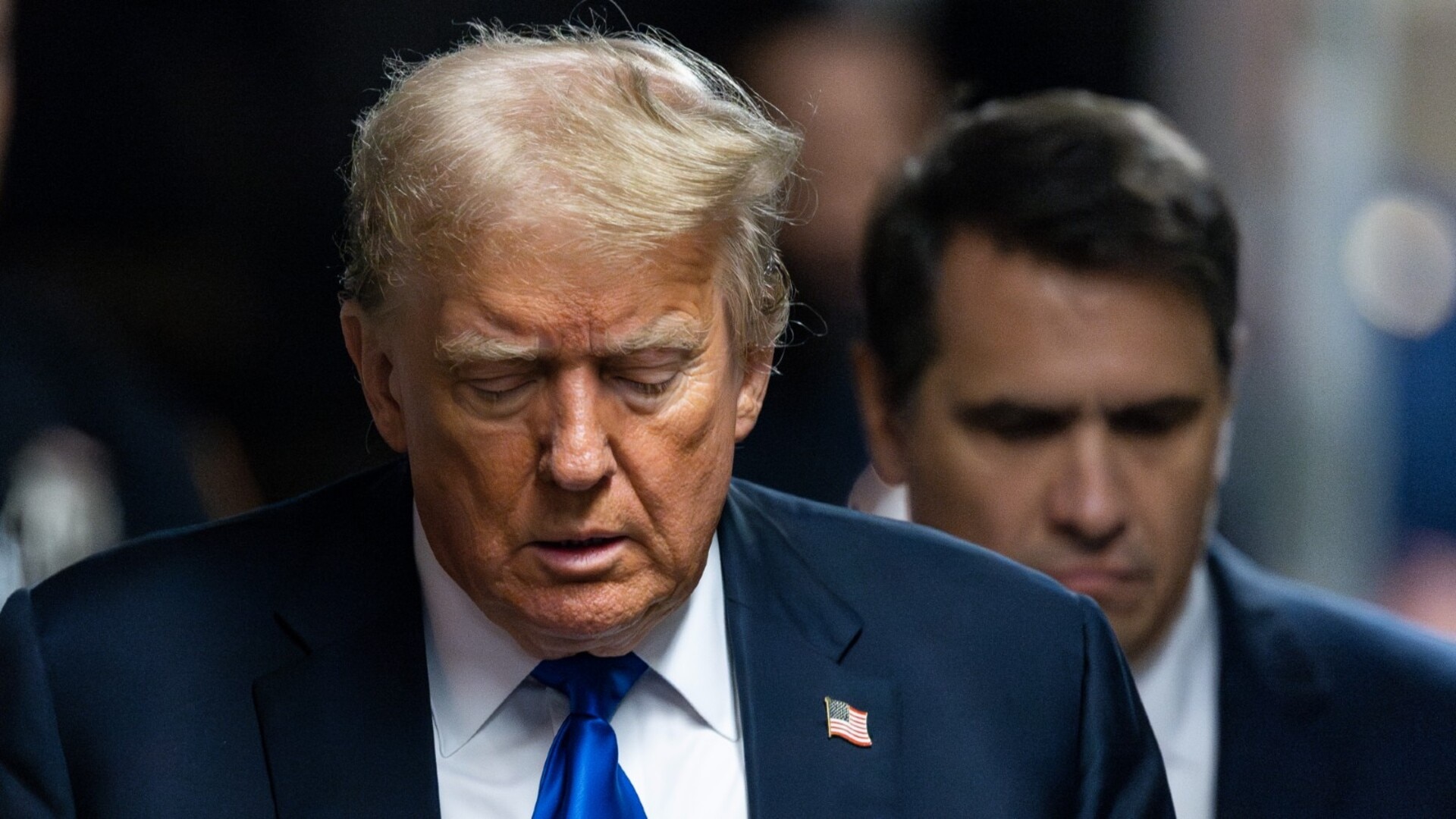Walmart becomes biggest retailer yet to pass through tariff price increases
The major US retailer, which counts 90pc of Americans as customers, plans to raise prices this month with other retailers likely will follow.

Trade war price increases are coming for American shoppers.
Retail goliath Walmart on Thursday said it plans to raise prices this month and early this summer, when tariff-affected merchandise hits its store shelves. Some prices already have increased.
“The magnitude and speed at which these prices are coming to us is somewhat unprecedented in history,” Walmart Chief Financial Officer John David Rainey said in an interview.
Walmart, which counts 90 per cent of Americans as customers, is the biggest company so far to signal that tariff-related price increases on everyday goods are coming. Other companies also have announced price increases. Ford Motor last week said it would raise prices on three of its popular vehicles. Birkin handbag maker Hermès said prices in the US would rise. Next week, Target, Lowe’s and Home Depot are set to report earnings and discuss their financial forecasts.
The full impact of tariffs hasn’t yet hit retailers’ shelves in part because many companies stockpiled goods ahead of the tariffs or postponed shipments from China. So far, the economic impact of tariffs has been muted in the US, with unemployment and inflation holding steady. And Walmart reported strong sales for the three months through April 30, as shoppers flocked to its deals and its low-price store brand.
But Walmart didn’t share a profit forecast for the current quarter, in part because the company may absorb some tariff costs to keep prices lower than competitors, Rainey said.
Walmart is already raising some prices as its suppliers pass through higher costs. For example, tariffs drove up the price of bananas, one of the most frequently purchased items at Walmart, to 54 cents a pound, up from 50 cents, Rainey said.

Walmart and other retailers will likely be strategic about which items to price higher so they can maintain competitive prices while keeping an eye on overall profits. In some cases, products that aren’t subject to tariffs could become more expensive, while prices on tariffed items could stay relatively steady. Walmart also will likely lean on its growing advertising business to boost profits.
This week, the US reached a temporary deal with China, agreeing to lower the extra tariffs on Chinese goods to 30 per cent from 145 per cent. Walmart executives Thursday warned that their business could suffer large disruptions if tariffs revert to higher levels. And a 30 per cent tariff on Chinese goods would still lead to meaningful price increases for most consumers, they said.
On a call with analysts Thursday, Walmart Chief Executive Doug McMillon thanked President Trump for the trade-deal progress and said he hoped a longer-term agreement would result in even lower tariffs. McMillon last month was among a small group of retail CEOs who spoke with Trump about how tariffs would affect their business.

Consumer spending was up slightly in April, rising 0.1 per cent from a month earlier, the Commerce Department said Thursday. Walmart said its consumers in the latest quarter continued to shop cautiously, as they have for the past few years because of inflation on essentials such as groceries and child care. That has been a boon to Walmart.
In March and April, stock markets gyrated and consumer sentiment plummeted, but Walmart’s sales grew. The company’s US comparable sales, those from stores and digital channels operating for at least 12 months, rose 4.5 per cent in the three months ended May 2, beating investors’ expectations.
Walmart shares slid by about 1 per cent in Thursday trading.
Unlike many other companies, Walmart left its sales and profit forecasts for the full year unchanged. Previously Walmart had set cautious expectations for its financial performance this year, in part because of the unpredictability of tariffs. Walmart is likely to be a relative winner in a time of economic uncertainty, Rainey said. “We tend to gain share, come out stronger.”
Wall Street Journal





To join the conversation, please log in. Don't have an account? Register
Join the conversation, you are commenting as Logout